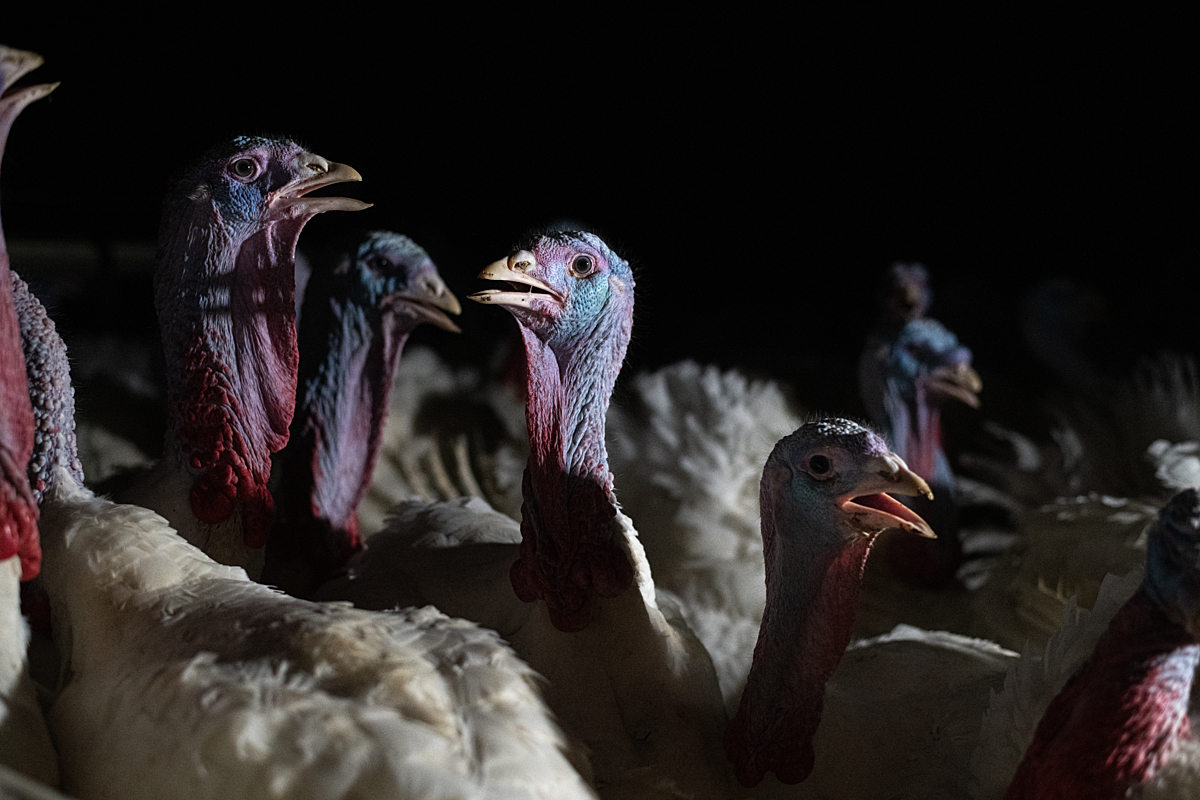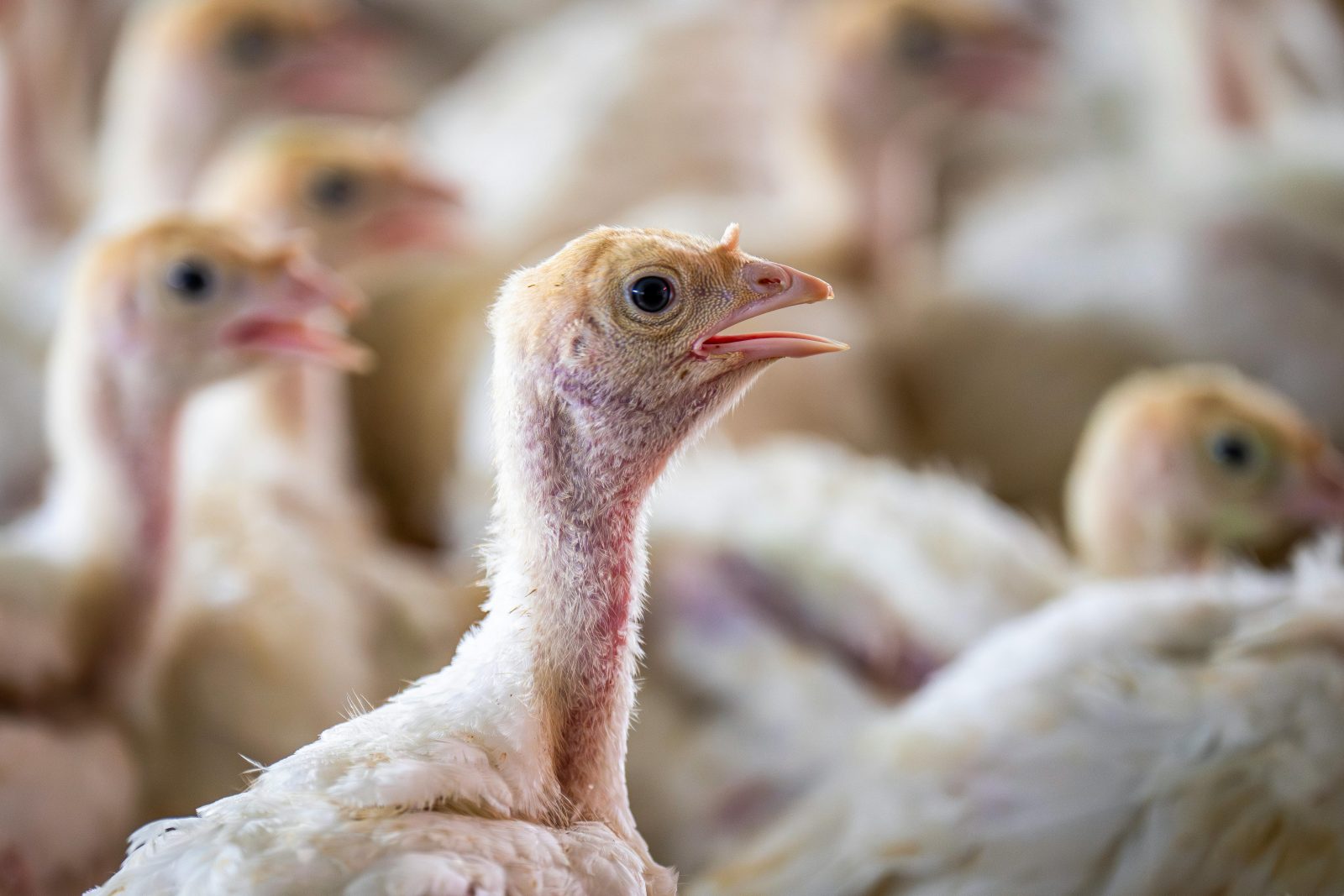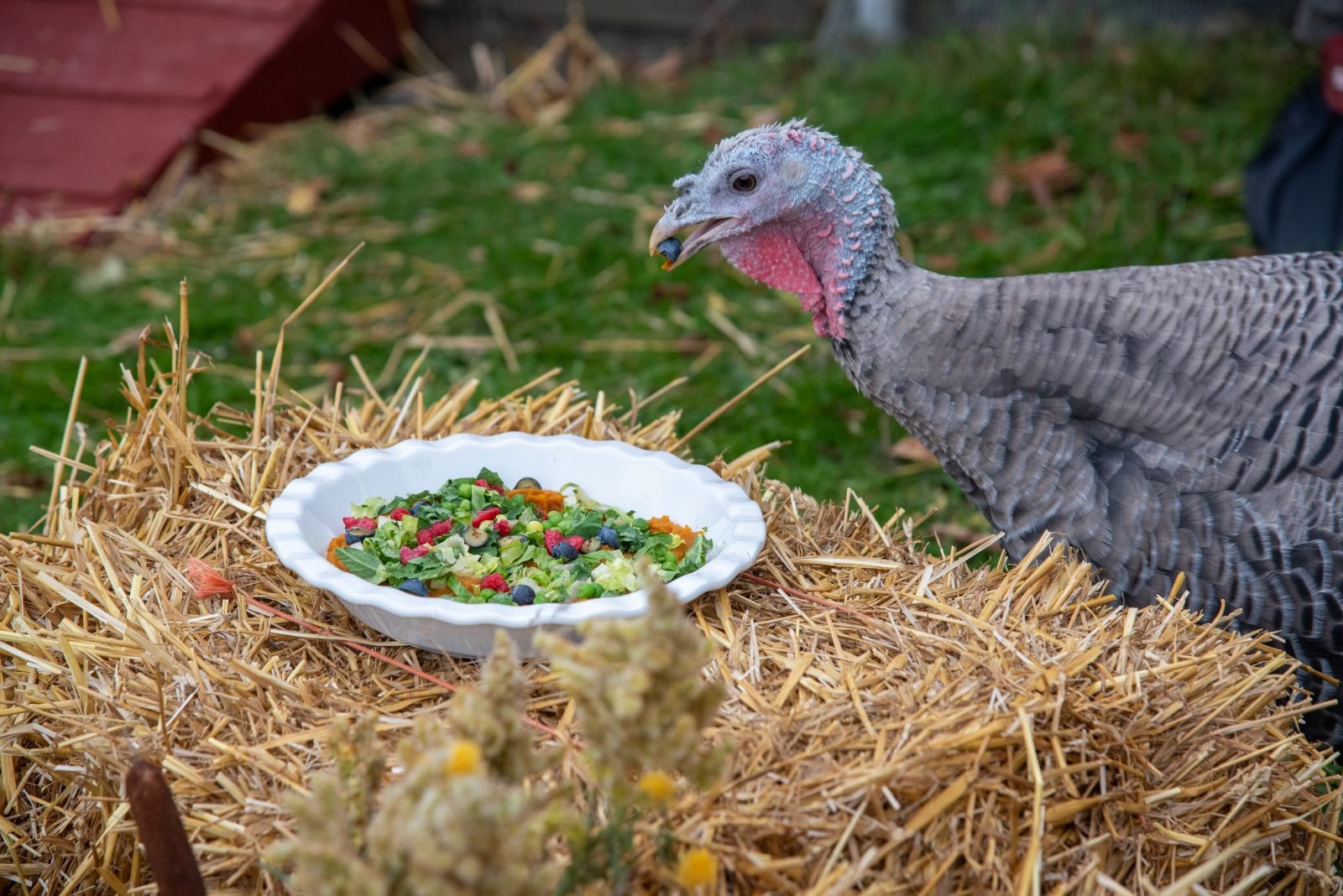The USDA’s reasoning for not including poultry under the HMSA is that their slaughter is governed by the Poultry Products Inspection Act. However, this law, which, in the USDA’s words, requires that birds “be handled using good commercial practices and that they do not die from anything other than slaughter after arriving at the slaughter facility,” is woefully inadequate.
By the time they reach the slaughterhouse, most turkeys will have suffered from the moment they hatched. Over 99% of U.S. turkeys are kept on factory farms, industrial facilities where as many as tens of thousands of birds are crowded into sheds. Parts of their sensitive beaks and toes are cut off or burned in an attempt to prevent stress-related fighting and injuries, exacerbated by factory farming itself. Bred to maximize agribusiness profit, modern turkeys grow too large and fast for their bodies to cope, leaving many with debilitating leg injuries or heart attacks. In fact, the turkeys grow so heavy that they can no longer mate naturally; instead, they endure artificial insemination. During transport from farm to slaughterhouse, thousands of turkeys may die, afforded no protection from extreme heat or cold, and denied food and water despite long journeys.
For those who live long enough to reach the slaughterhouse, the preventable suffering continues because, without legislation to mandate more humane handling, turkeys are left at the mercy of profit-driven agribusiness.
Birds are violently handled and shackled upside down by their legs to be stunned before slaughter. This immobilizes them so they don’t move and can be killed more efficiently, but the stunning isn’t intended to render them insensible to pain, which would be required if they were protected under the HMSA. This means that birds can be conscious as they are killed, including when they are lowered into a tank of scalding hot water and boiled alive.







